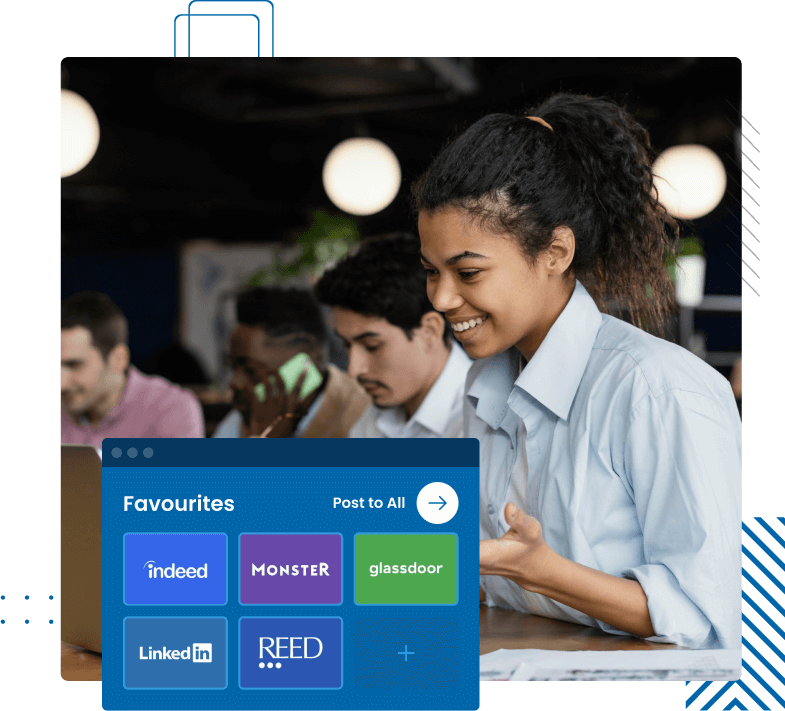The Covid-19 pandemic has transformed recruitment in more ways than one. Virtual interviews, remote hiring, remote work have grown in popularity and significance ever since the pandemic disrupted hiring.
We have listed few recruiting trends that are expected to emerge stronger this year and impact hiring practices tangibly.
Remote hiring is here to stay
Organizations were quick to adapt to the virtual hiring mode during the Covid-19 crisis. Virtual Interviews and online tests have now replaced the conventional recruitment process. Hiring Managers are acquiring new skills to onboard candidates through remote hiring procedures. In the same way that a hybrid workforce of onsite and remote employees will become more normalized, a hiring process that combines virtual and in-person processes will become increasingly standard due to the associated cost and time savings, according to 70 percent of respondents to the LinkedIn survey. Job interviews will largely continue to be conducted virtually. Virtual and automated interviews will instead replace many in-person touchpoints and help accelerate hiring timelines and meet recruitment goals.
Companies will prioritize internal hiring
Internal mobility has grown since the onset of COVID-19. Most businesses feel recruiting budget will decrease this year due to the impact of the Covid outbreak, on the other hand training and development program budgets are expected to rise or stay constant. Experts are of the opinion that employers will train their existing workforce through internal mobility programs aimed at reskilling initiatives or engage contingent talent instead of hiring externally. Others predict that companies will continue to move from static jobs toward project-based, cross-functional work dictated by changing business needs.
Increased engagement, lower costs, improved retention, and a shorter hiring process are a few of the benefits of the shift to internal mobility. In the future companies will include internal mobility as an integral part of their corporate strategy rather than just an ad hoc solution. This will lead to HR and L&D partnering closer than ever before to better understand existing skill sets, address skill gaps in their organization and build more robust internal mobility programs.
Importance of employer branding
Having a sound reputation can give your organization an upper hand during the talent acquisition process. It can boost your chances of onboarding new talents and retaining the old ones. Your prospective employees will conduct research on your company’s reputation and its core values before applying for the job. If your business enjoys a higher reputation and better word of mouth it will eventually result in quality candidates choosing your organization over others.
Emergence of automated HR tools
Organizations across the globe have now reshaped their talent acquisition procedure with increased use of Automated HR tools and AI. Such smart tools enable them to ease the recruitment process and even engage your applicants to a higher level compared to the traditional hiring process.It can seamlessly guide the entire procedure to select, hire and, onboard your recruits. Many employers believe that the entire recruitment process will be automated by 2027.
Artificial Intelligence (AI) is also gaining momentum in organizations now, it could be beneficial for screening for candidates, scheduling interviews. It can accelerate the process by screening many resumes within seconds and also save the candidate data in their database for further references.
Remote work culture
The remote working schedule has been trending ever since the pandemic hit the world. It has been a boon for employers in terms of financial gains and for employees in terms of flexibility of work. Remote working culture saw a remarkable increase in employees working without direct supervision and still increased productivity.
Remote work entices with its promises of diverse talent pools, increased productivity and retention, salary and facility savings, and a lower carbon footprint. Compensation planning is further complicated by considering capacity, technology, and corporate culture, and staff visibility.
Recruiters are uniquely positioned to provide critical insights on this transition, bringing data-driven insights about where talent is as well as anecdotal feedback about what talent wants and needs to the table. Knowing about these concerns can give businesses a competitive advantage if they act quickly to address them.
Wider talent pools
HR Industry is transforming to a higher degree with new prospects. Recruitment is now possible even across international borders with the remote work culture. Talent pools have turned to be wider with the prospect of hiring highly skilled recruits to your organization.
Diversity to remain
According to experts, diversity, equality, and inclusion will continue to be a focus area for recruiters, particularly when more applicants will base their job decisions on a company’s commitment to inclusion. According to LinkedIn, nearly half of talent professionals believe hiring managers are not held accountable for interviewing a diverse slate of candidates. More recruiters, according to some analysts, will seek to eliminate arbitrary entry hurdles such as educational qualification from job credentials, push for a diverse pipeline of applicants, and keep hiring managers responsible for advancing those applicants through the recruitment funnel.
Diversity is irrespective of the conventional parameters of age, race, gender it has a wider angle like skills, including soft skills and professional skills. Being equipped with a team of diverse talents can boost your productivity, provide employee satisfaction and result in a better brand reputation too. It could of great help to know your customer needs, gain a competitive edge over your rivals, and can skyrocket your revenue.
Candidate experience matters
Employers should stay ahead and focused while advocating new systems for the hiring process. There should be an optimum level of balance between human connection and your company’s goals. Informal interactions during the hiring process can create a lasting impression of your organization in their minds, “word of mouth” has not yet lost its charm even in the twenty-first century. If the company experience was pleasant, the chances of them accepting the offer or referring someone for any open positions are high. Employee review sites provide a credible way to measure and evaluate candidate experience. Collecting applicant feedback and taking corrective action could be of great help in improving employee experience for future hiring.
Great disparity between junior and senior hires
In the wake of the pandemic, we have seen a dramatic increase in the hiring of recent graduates and first-timers. Such hires Such recruits also lack soft skills such as work ethics, the ability to perform under pressure, and so on. Academic preparation alone can’t turn you into a talented and creative designer. Successful creative professionals must develop additional skills when working during their “remote” time, such as multitasking, time management, and communication in order to meet tight deadlines or fill in for colleagues.
New recruiter skill sets
Recruiting has been distorted and remolded over the last few months, and that’s to be expected to persist. Regardless of changing business priorities, the primary task for recruiters will always be finding ways to expedite the pace of hiring. Recruiters will need to change their roles as needed but few will take on the responsibility of handling different locations or assignments, even though it is unusual for them to do so. Indeed, new skills are the top growth competency for recruiters.
Increasingly, companies will increasingly act as a recruiting link between their hiring requirements and other key HR initiatives. Hoping for no surprises, they rapidly acquire skills such as diversity and inclusion, making decisions, and learning how to use an HR strategy is useful. They will bring clear and continuous talent data to the marketplace, implement a new employer brand, and streamline the virtual hiring process
Conclusion
As a new year of unprecedented trends is unfolding it’s time to adapt to new hiring processes to stay relevant and optimize candidate experience.




